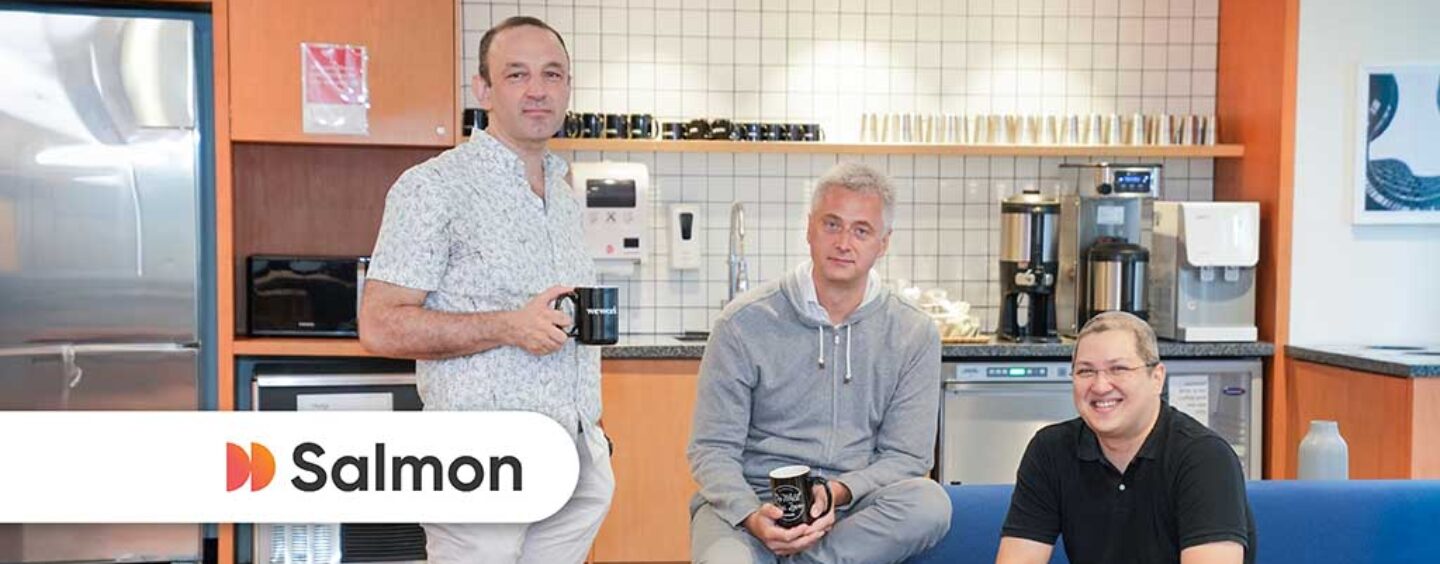
BSP’s Push to Standardise QR Codes Helps Salmon Expand Financial Inclusion
by Fintech News Philippines October 26, 2023Bangko Sentral ng Pilipinas’ (BSP) recent moves to standardise QR payment codes across the Philippines are helping democratise consumer credit in the Philippines in unexpected ways, with Salmon leading the charge.
Based on a global standard for secure payments, QR Ph code standard was developed to streamline the use of QR codes across the Philippines, given that the regulator recognised the immense potential of QR code technology as the most convenient and cost efficient means of money transfers and payments.

“The use of QR-enabled payment and financial services has been gaining traction as an alternative to the traditional debit and credit cards,’’ BSP noted on its website. “With these developments, we anticipate the emergence of new business models and varieties of products and services to be offered.’’
Salmon, a fintech company working to make financial services simpler and more accessible to all Filipinos, is leveraging this use of QR Ph and other technologies to open up credit to the country’s underbanked population.
In September, it rolled out Salmon Credit – a new credit line product with integrated QR Ph payment functionality and can be accessed via the Salmon App by existing customers.

Raffy Montemayor
“From July first this year the central bank forced everybody to use the standardised QR Ph code, opening up the market to more players including Salmon.
We connect to the QR Ph standard through our bank partners and immediately our customers were able to easily use their loan for day-to-day spending. Through us they’re now able to transact in even more stores that they could have done if they had a credit card, so it’s a great way of providing access and convenience to our customers.’’
said Raffy Montemayor, Salmon’s Co-founder and Head Of Philippines Business in an interview.
Some 76% of Salmon customers are first time borrowers of formal credit.
Salmon Credit, which is set to become available to the general public this quarter, grants customers easy and flexible access to credit, helping people fund their daily spending needs without requiring a separate loan application for each purchase and allowing them to use just the amount of credit they need at the moment.

Customers can either instruct Salmon to disburse their available limit to any Instapay-enabled bank account or e-wallet, or make payments at locations accepting QR Ph, including those of GCash, Maya and many others, which are widely used by millions of Filipinos.
By using QR Ph codes, Salmon has been able to significantly simplify the financial transaction process for individuals, enabling them make payments at more than 600,000 QR Ph-enabled locations – a merchant network that surpasses the reach of Visa/Mastercard terminals in the Philippines by a factor of 10:1.
“The great user experience is also made possible by Salmon’s data-centric approach and AI, which helps us to better understand our customers and sets a personalised maximum facility amount for them that evolve with their spending needs. The launch of Salmon Credit marks a significant milestone for us.”
Montemayor said.
For Salmon, the rollout of Salmon Credit marks a key step in its journey towards expanding financial inclusion in Southeast Asia by widening the reach of technology-enabled financial services.
Salmon Credit looks to empower individuals, particularly those who are younger and just entering the workforce, with the credit they need to secure a better quality of life for themselves and their families.
According to Salmon, customers are already using funds to purchase consumer goods to upgrade their standard of living, as well help small businesses to operate and grow.
Montemayor added,
“We make it easy for customers to do this. They apply for Salmon Credit, and within 30 seconds, we process and approve their application, so they can immediately start transacting.
The speed at which we were able to execute our plans to provide simple, engaging and transparent credit products for Filipino consumers makes Salmon stand out. We also continue to retainour commitment and our ability to satisfy the needs of our customers.”
The Salmon app currently has a 4.8 – 4.9 rating in the App Store, Google Play Store and Huawei App Gallery, while its survey revealed that 92% of its customers would recommend the company’s products to friends and family.

While benefiting from having a highly experienced team, Salmon’s entrance to the market was also well timed, with the Philippine government and its regulatory authorities having spent the last few years laying the groundwork for digital financial services and business models that prioritise digital innovation.
In addition to standardising the country’s QR network, the regulator has unveiled new digital banking licenses, implemented a real-time payments system, and worked to standardise the country’s national identification documents.
The latter issue has been a particularly challenging obstacle for financial services companies to overcome in the past: there are currently some 26 forms of ID used in the Philippines, making it extremely difficult for companies to accurately verify customers’ identity and efficiently combat fraud.
Salmon has overcome this by using AI-enabled facial recognition to identify its customers and employing a proprietary credit scoring engine fueled by multi-source data to help the fintech company better understand potential customers, even without access to established credit histories. Going forward, the unified national ID will help simplify the system for all.
“We are incredibly proud that in a short span of time, we have been able to extend credit to hundreds of thousands of people, helping to transform their lives and expand the opportunities available to them.
This continues to inspire me and drives our team and I forward on our mission to make financial services simple, easy, and more accessible to everyone in Southeast Asia.”
Montemayor concluded.







